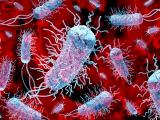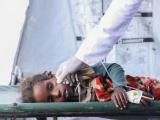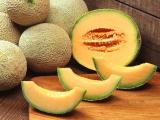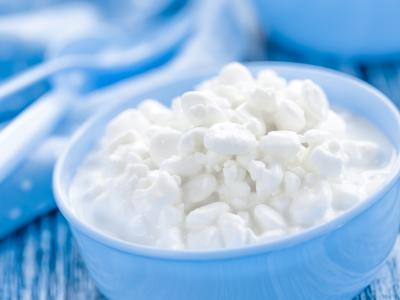Aug 2, 2002 (CIDRAP News) At least 32 people suffered Escherichia coli O157:H7 infections in a July outbreak that was linked to romaine lettuce distributed in the Spokane, Wash., area, according to local and federal health officials.
The Food and Drug Administration (FDA) warned consumers this week not to eat Spokane Produce brand romaine lettuce because of the outbreak, which mainly affected young people who attended a cheerleading and drill-team camp at Eastern Washington University in Cheney from Jul 11 to 14.
Twenty-six camp attendees and six other people in the region had laboratory-confirmed infections with E coli O157:H7 strains that were matched by pulsed-field gel electrophoresis (PFGE), according to Kim Thorburn, MD, MPH, health officer for the Spokane Regional Health District. One girl suffered hemolytic uremic syndrome (HUS) and was still hospitalized today, Thorburn told CIDRAP News.
The PFGE testing and an analysis of food surveys completed by more than 100 camp participants pointed toward a Caesar salad served at the camp Jul 11 as the source of the pathogen, according to a news release from the Spokane Health District. "Everyone who became ill reported consuming this salad," officials said. "Most became ill between July 13 and 15, within the typical incubation period of an E coli O157:H7 exposure on July 11."
The six laboratory-confirmed cases in non-campers included one in Walla Walla, Wash., where a restaurant had served lettuce supplied by Spokane Produce. "The Walla Walla case made the lettuce suspicious, rather than the dressing," Thorburn said.
Two of the other patients whose illness initially appeared unrelated to the cheerleading camp had "actually shared a meal with the campers that had the lettuce that showed the strong association," Thorburn said. Another patient with a lab-confirmed case who had not been at the cheerleading camp attended a church camp with several young people who had just come from the cheerleading camp, she said.
The FDA, in an alert issued Jul 29, said the romaine lettuce was packaged in 5-pound bags labeled "Romaine Toss" and was distributed by Food Services of America. The lettuce was sold under several different brand names. "To date, the outbreak has only involved exposure to romaine lettuce packaged in these 5-pound bags," the FDA said. "The romaine lettuce may also be sold at retail establishments in various size packages." The lettuce has a shelf life of 2 weeks, the agency said.
Thorburn said that because the weather during the cheerleading camp was "exceedingly hot," investigators had been concerned about the possibility of contamination in water containers. "We did bring in water containers from the university and flushed water from them and got coliforms but did not find E coli," she said. But some of the camp participants said they had taken the tops off water containers and dipped cups into them, so "it's possible we might have been having some secondary spread that way," she added.
A health alert statement on the Eastern Washington University Web site said that all ice machines on the campus, along with the containers used with them, were being emptied, cleaned, and sanitized. The notice said the campus water system was tested and found to be free of E coli.
In addition to the 26 lab-confirmed cases in cheerleading camp participants, another 13 participants had similar illnesses in the time frame of the outbreak but were not tested, Thorburn said. "So the attack rate among the campers was nearly 50%," she said. Six or seven of the sick campers initially were hospitalized because of dehydration, but most stayed only one night, and only one suffered HUS, she reported.
Seven people from the cheerleading camp, including three who had been sick, attended the church camp immediately afterward, Thorburn said. Eleven people at that camp subsequently became ill, but only one case was definitely linked to the outbreak by lab tests. Stool cultures were done for six other people from the church camp; four tests were negative and two results were still being awaited today. "So it looks like we don't have a big secondary outbreak," Thorburn said.
She said the FDA is investigating how the lettuce became contaminated. "We know that the origin of the lettuce was California, probably the Salinas Valley." But investigators are still focusing on the Spokane distributor of the lettuce and "haven't intensified the search with packers and growers in California yet," she said.
The Centers for Disease Control and Prevention estimates that 73,000 E coli O157:H7 infections occur each year, with 61 deaths, according to the Spokane Health District news release. The statement noted that most cases are due to eating undercooked ground beef, but cases also have been linked with sprouts, lettuce, salami, unpasteurized milk and juice, and exposure to sewage-contaminated water.


















